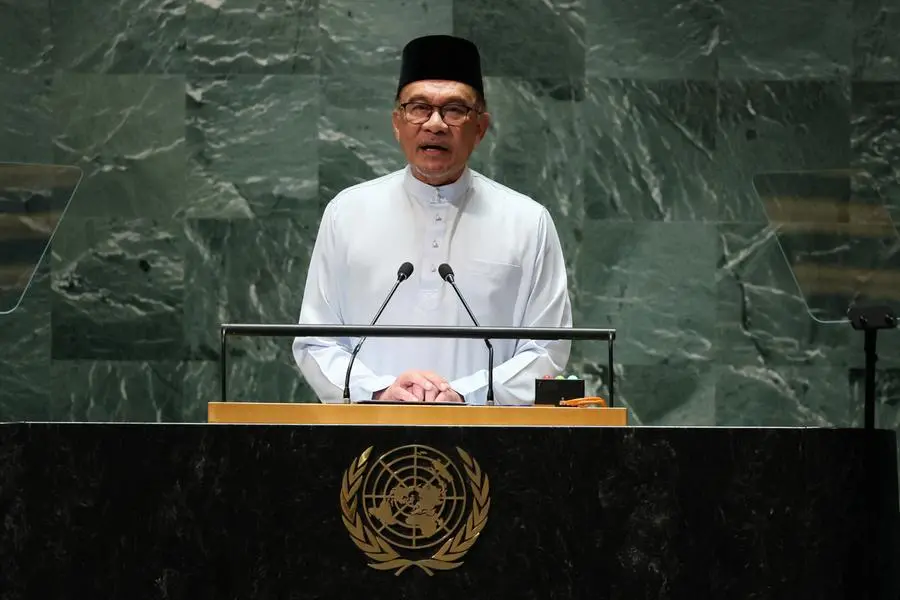PHOTO
KUALA LUMPUR - Malaysia Prime Minister Anwar Ibrahim said China had given an assurance that it would continue to negotiate with Southeast Asian countries over disputed territorial claims in the South China Sea, and avoid actions that risked escalation.
Speaking to CNN in an interview broadcast on Saturday, Anwar said Chinese Premier Li Qiang gave him the assurance after Beijing released a map with a "10-dash line" last month that appeared to expand its claims in the disputed waters.
Malaysia and several other Southeast Asian countries have rejected the map.
Anwar said Li was "clear and categorical" in saying that China would continue to negotiate and not "exercise any action that would explode or cause dissension with our colleagues, our friends in the region."
"That was very reassuring," Anwar told CNN journalist Christiane Amanpour.
Anwar said Malaysia remained concerned over escalating tensions as China sought to assert its sovereignty claims over Taiwan, adding that both parties needed to avoid "unnecessary provocations" that can affect the region.
Anwar also addressed doubts raised over his commitment to democratic reforms, after his government dropped corruption cases against key allies, filed sedition charges against opposition leaders, and increased scrutiny of Malaysia's LGBTQ community.
Anwar said he would not interfere in decisions made by Malaysia's attorney general, adding that laws against seditious remarks involving the country's monarchy should be respected.
He reiterated that Malaysia would not accept LGBTQ rights but said that the community should not be harassed, and he spoke out against his government's move to ban Swatch watches celebrating the Pride movement.
Malaysia's home ministry this year confiscated and later banned the sale of rainbow-coloured watches from Swatch's 'Pride collection', saying they may be harmful to morality and public interest.
Selling or owning the banned material was punishable by up to three years in jail and a fine, the ministry had said.
"I wouldn't defend that actually, they were as you say, excesses, but... there is a consensus in the country, they do not accept (LGBTQ rights)," Anwar said.
(Reporting by Rozanna Latiff; Editing by Simon Cameron-Moore)





















